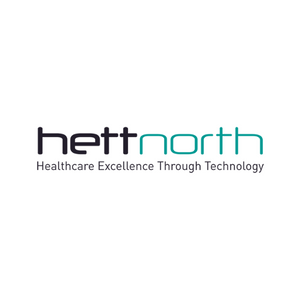In recent years, the healthcare industry in the UK has undergone a transformative journey, leveraging technology to enhance patient care, streamline operations, and promote collaboration among healthcare professionals. One of the key innovations driving this change is the adoption of cloud-based healthcare systems. In this blog post, we will explore six compelling benefits that a cloud-based healthcare system brings to the UK's healthcare landscape.
Benefits of a Cloud-Based Healthcare System
Enhanced Accessibility and Flexibility:
Cloud-based healthcare systems break down geographical barriers, providing healthcare professionals with secure access to patient information and medical records from anywhere with an internet connection. This enhanced accessibility fosters a more flexible and dynamic healthcare environment, enabling timely collaboration among specialists, general practitioners, and other healthcare stakeholders. Patients also benefit from improved accessibility to their own health records, promoting patient engagement and empowering individuals to actively participate in their healthcare journey.
Cost-Efficiency and Scalability:
Traditional on-premise healthcare systems often come with hefty upfront costs for hardware, software, and maintenance. In contrast, cloud-based solutions offer a more cost-effective model, allowing healthcare providers to pay for the resources they use on a subscription basis. This pay-as-you-go approach eliminates the need for significant upfront investments, making it easier for healthcare organisations of all sizes, including smaller clinics and regional hospitals, to adopt advanced technologies. Additionally, the scalability of cloud solutions ensures that healthcare providers can easily adjust their resources based on changing demands, promoting efficiency and resource optimisation.
Improved Data Security and Compliance:
The healthcare sector demands the highest standards of data security and compliance. Cloud-based healthcare systems employ advanced encryption protocols, multi-factor authentication, and robust access controls to safeguard sensitive patient information. Cloud service providers often adhere to stringent security certifications and comply with data protection regulations such as the General Data Protection Regulation (GDPR) in the UK. By entrusting data management to reputable cloud providers, healthcare organisations can enhance their overall security posture and focus on delivering quality patient care without compromising on data integrity.
Facilitated Interoperability:
One of the significant challenges in the healthcare sector is the seamless exchange of information among disparate systems. Cloud-based healthcare solutions address this challenge by promoting interoperability. These systems are designed to integrate with various healthcare applications and platforms, allowing for the seamless flow of data between different departments, clinics, and healthcare professionals. This interoperability not only enhances collaboration but also contributes to a more holistic view of patient health, leading to better-informed decision-making and improved patient outcomes.
Advanced Analytics for Informed Decision-Making:
Cloud-based healthcare systems offer robust analytics capabilities that empower healthcare providers to derive valuable insights from vast amounts of data. By leveraging machine learning algorithms and data analytics tools, healthcare professionals can identify patterns, trends, and potential risks more efficiently. This data-driven approach facilitates informed decision-making, personalised patient care plans, and the proactive management of health conditions. Moreover, analytics can be instrumental in optimising operational processes, resource allocation, and identifying areas for continuous improvement within the healthcare ecosystem.
Disaster Recovery and Business Continuity:
Ensuring the continuity of healthcare services is paramount, especially during unforeseen events such as natural disasters or cyberattacks. Cloud-based healthcare systems provide built-in disaster recovery mechanisms, ensuring that critical data is backed up securely and can be swiftly restored in case of an emergency. This resilience minimises downtime and allows healthcare providers to continue delivering essential services, safeguarding patient care even in the face of unexpected disruptions.
The Future of Cloud-based Healthcare Systems
As the UK healthcare landscape continues to evolve, embracing cloud-based healthcare systems emerges as a strategic imperative. The benefits outlined – enhanced accessibility, cost-efficiency, improved security, facilitated interoperability, advanced analytics, and robust disaster recovery – collectively contribute to a more efficient, collaborative, and patient-centric healthcare ecosystem. By harnessing the power of cloud technology, the UK healthcare sector can pave the way for a future where innovation and quality care go hand in hand.
%20(1).png?width=500&height=58&name=HETT%20insights%20logo%20RGB-04%20(1)%20(1).png)


